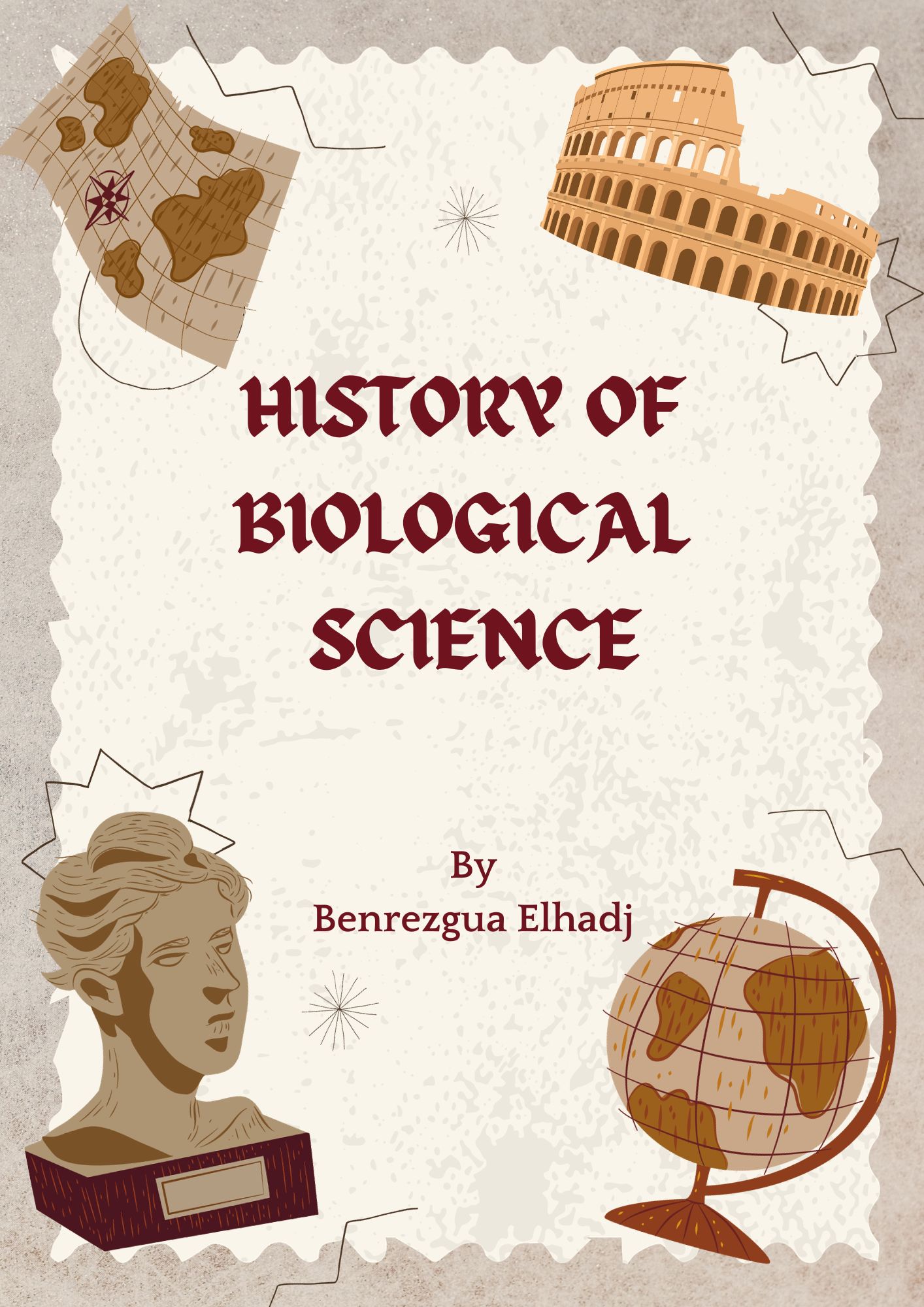Informations du cours

The history of biological sciences traces humanity's evolving understanding of life, spanning from prehistoric times to modern advancements. Here’s a concise summary of the key milestones:
1. Prehistory and Ancient Civilizations:
- Early humans relied on observation and experimentation for survival, using plants for medicine and developing early knowledge of nature.
- Ancient Egyptians practiced embalming, contributing to early anatomical knowledge. Greek philosophers like Aristotle classified organisms, while Galen made advances in human anatomy and medicine.
2. Middle Ages:
- In the Islamic world, scholars like Avicenna and Rhazes made significant contributions to medicine and biology.
- In medieval Europe, scientific progress was limited by religious doctrines, slowing biological discoveries.
3. 16th and 17th Centuries:
- During the Renaissance, scientists began to study nature systematically.
- Andreas Vesalius advanced human anatomy, and the invention of the microscope by Anton van Leeuwenhoek revealed microorganisms, opening new frontiers in microbiology.
4. 18th Century:
- Carl Linnaeus established a systematic classification of species, while early ideas of evolution began to take shape.
- The study of biodiversity and life as a dynamic process gained prominence.
5. 19th Century:
- Charles Darwin's theory of evolution by natural selection (1859) revolutionized biology, explaining the diversity of life.
- Gregor Mendel laid the foundation for genetics through his pea plant experiments, and cell theory emerged, defining the cell as the basic unit of life.
6. 20th Century:
- Watson and Crick's discovery of DNA structure in 1953, along with advances in molecular biology, reshaped our understanding of genetics.
- Genetic engineering and biotechnology development opened new possibilities in medicine and agriculture.
- Techniques like electron microscopy and MRI allowed scientists to explore life at a molecular level.
7. 21st Century:
- The rise of gene-editing technologies like CRISPR and advancements in environmental biology have further expanded our understanding of life’s complexity.
- Biodiversity conservation and ecological balance have become key areas of scientific focus.
- Enseignant: Elhadj BENREZGUA
